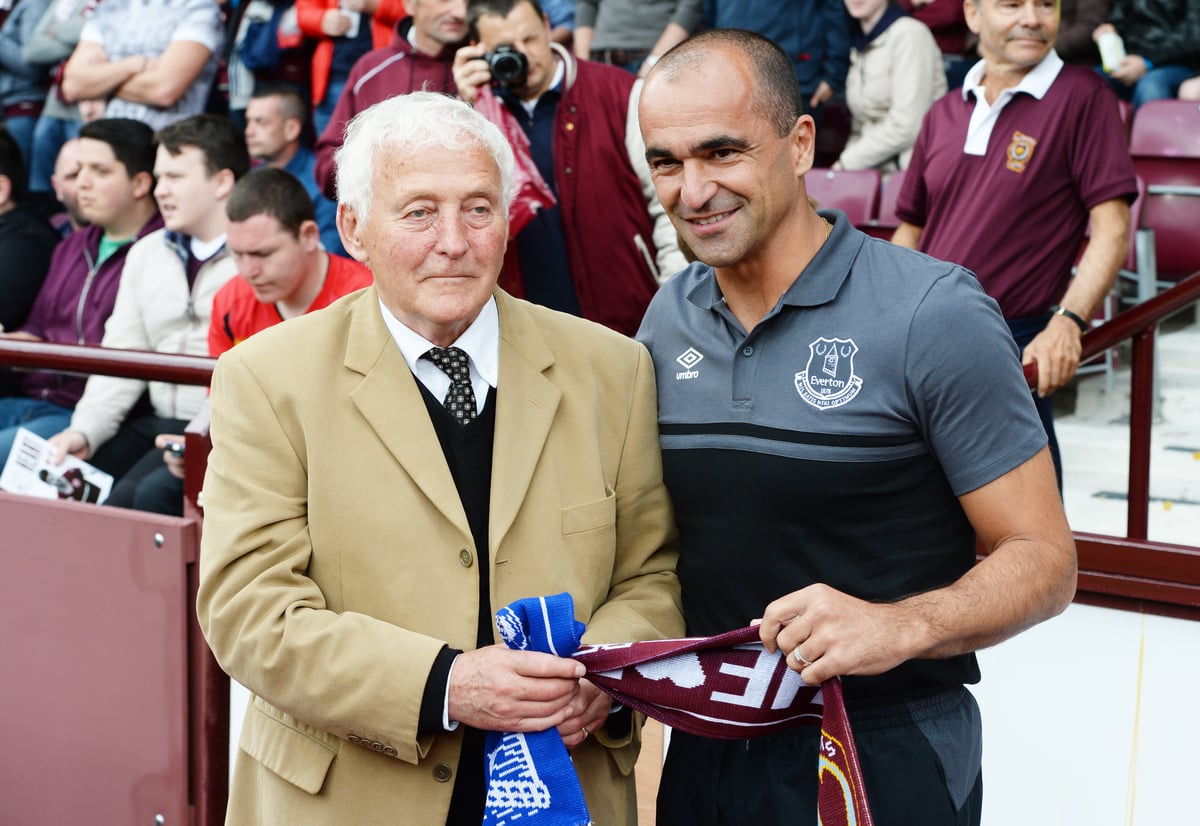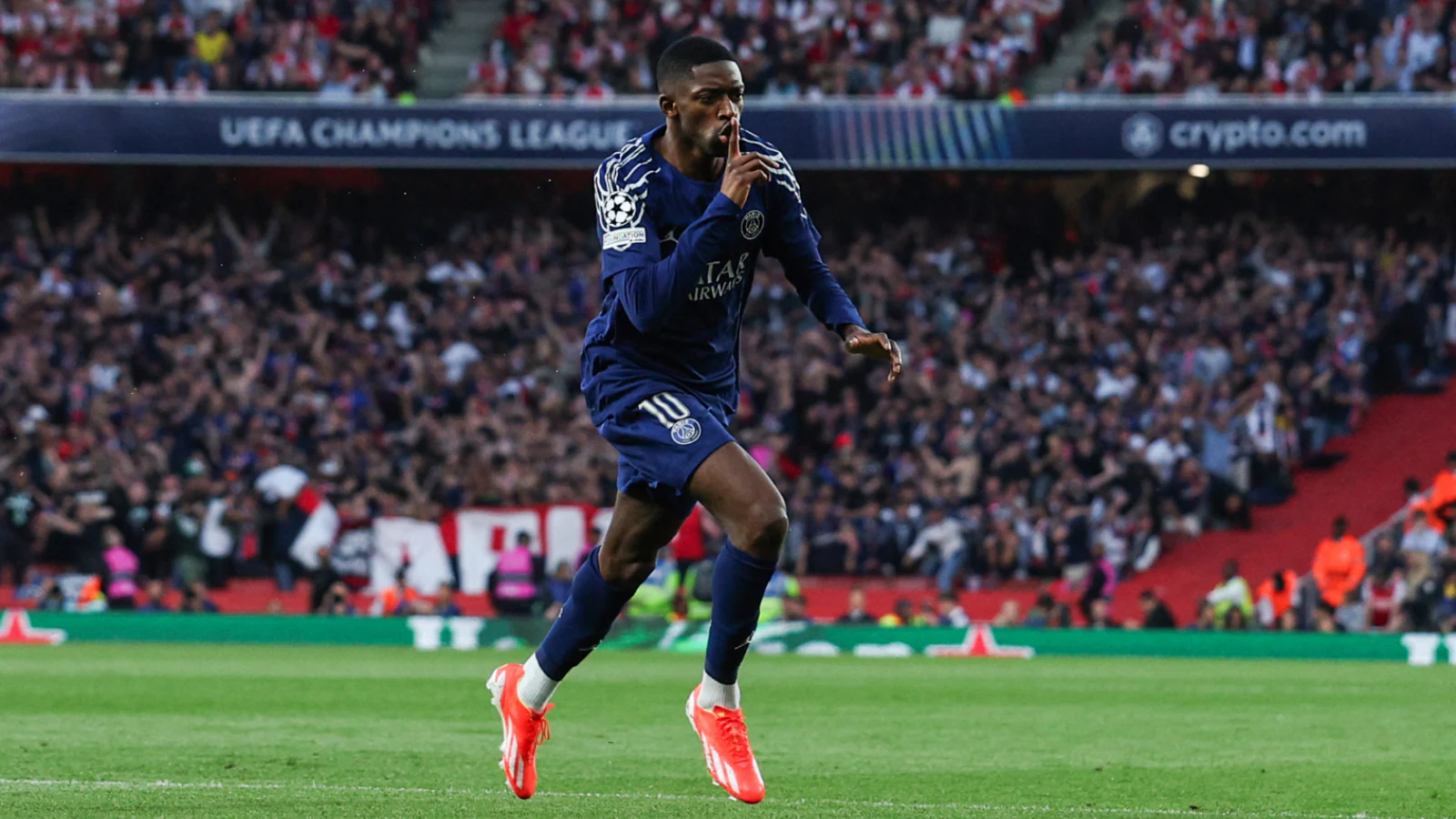Copyright scotsman

As Derek McInnes strives to be Hearts’ first manager since the great Tommy Walker to win a top-flight title with Hearts, we take a trip down memory lane. Back in the 1959/60 season Walker led the team to their second Scottish League Championship in three years, finishing four points ahead of Kilmarnock. In the same season, the Jambos also won the League Cup, making it the only time the Gorgie side have ever secured a domestic double. Since then, the Jambos have been runners-up five times. The most agonising of which was in 1986, when they narrowly lost out on the league to Celtic on goal difference. They went into the final day needing a point but Dundee substitute, Albert Kidd came on to crush the dreams of Alex MacDonald’s side. With special mentions to Danny Ferguson, Jimmy Milne, Willie Bauld, Eric Stevenson, Jim McFadzean and Jimmy Murray, who all played their part in the previous rounds, here’s a look at how the Jambos lined up in their 2-1 victory over Third Lanark in the 1959 Scottish League Cup final, the same season they last won the league: The only English member of the squad, the legendary Jambo shot-stopper made his debut at just 17 years of age, winning two league titles and three League Cups at Tynecastle. He then moved south of the border to play with Newcastle United for a fee of £17,500. After spells with Nottingham Forest, Hibs, Celtic, Aberdeen and Arbroath, he hung up his gloves in 1978. Post-retirement, Marshall was often found in his Newsagents in Edinburgh’s West End, which he continued to run after his playing days. His sons Gordon Jnr. and Scott also went on to have successful football careers. Having featured for both Dunfermline Athletic and Raith Rovers as a youngster, Kirk left Fife for Gorgie in 1955, where he would spend the rest of his career, making 364 appearance in the process. A versatile defender, who could play on either side, he was also lethal from penalties, with all 12 of his Hearts goals coming from the spot, two of which came against Hibs in a 6-1 thumping at Tynecastle in 1956. Known for being well-mannered and quiet, he was never booked during his entire Hearts career. In his later years, he worked as a physio for a number of lower league Scottish clubs, including Linlithgow Rose, where he spent two decades. In a successful trinity with Marshall and Kirk, Thomson made up a successful Hearts trio that won two First Divisions and two Scottish League Cups. The utility player came through the youth ranks at Tynecastle as a teenager but managed to make his way into the first team in 1957. He made 171 appearances and scored 17 goals for Hearts before moving to Everton alongside teammate Alex Young for a combined £55,000. He would then have a spell at Brentford before retiring in 1968. Thomson was nicknamed 007 during his time at Hearts because of his good looks. Born in Pittenweem, after playing for Scottish schoolboys he was signed by Chelsea on his 17th birthday, however only made one appearance at Stamford Bridge before moving to Hearts for a transfer fee of £1,000. He made 135 appearance for The Jambos, however this figure would’ve been a lot higher had he not had Dave Mackay and John Cumming playing in front of him, two of the greatest wing-halves in the club’s long history. After spells with Newport County, Hamilton Academical and Stenhousemuir, he eventually retired in 1968 and spent life after football working for Scottish and Newcastle breweries. His son Dave also played for Hearts in the early eighties. Having signed for Hearts as a teenager from Carluke Rovers, Cumming would stay at Tynecastle for nearly two decades. Synonymous with his right hand man, Dave Mackay, the duo drove Hearts on to countless victories during the 1950s. Cumming to this day is the most decorated Hearts player in history, winning two league titles, one Scottish Cup and four League Cup medals. Mackay said of his teammate, “John never had a bad game. It was either or a fairly good game or an excellent game.” After hanging up his boots in 1967 he remained at Hearts as a trainer and later returned to work in the steel industry. A modern-day defensive midfielder that put out fires for The Jambos, Higgins spent a decade at Tynecastle, making 197 league appearances, before emigrating to South Africa to play for Durban City. He scored 21 goals for Hearts and had a knack for netting in the big games. The midfielder scored in the equaliser in a 4-3 victory over Celtic in 1963 and also scored an important goal in a league match against Rangers two years later in a 1-1 draw. The only man ever to win a Scottish Championship with three Scottish clubs, having spent 18 years at Hibs and being part of ‘The Famous Five’, Smith made the brave move to Gorgie in 1959. The winger had an operation on his ankle before signing, however, his career was cut short at Hearts, for whom he made 42 appearances. Despite many writing him off after leaving Tynecastle, at the age of 37 he signed for Dundee, where he helped the Tayside outfit to First Division glory in 1962. After hanging up his boots he opened a pub called ‘The Right Wing’ in Edinburgh after his preferred position on the pitch. A journeyman of his time, Crawford began his senior career at Hamilton Academical before moving to Hearts at the age of 20. Scoring two goals in the 1956 Scottish Cup Final in a 3-1 victory over Celtic in front of 132,000 supporters, Crawford instantly became a fans favourite at Tynecastle. He spent seven years in Edinburgh before moving to West Ham United for £10,000 in July 1961, where he played alongside English World Cup winning captain, Bobby Moore. He then played for Scunthorpe and Peterborough United before retiring in 1968. A goal machine for the Jambos and scorer of the winner on the day, ‘Sandy’ Young started his senior career at Tynecastle in 1955, when Walker gave him his debut aged 18. After five successful years at Hearts, the striker left Edinburgh for Merseyside when he moved to Everton, along with Thomson for a combined fee of £55,000. He would stay at Goodison Park for nearly a decade, winning three major honours with The Toffees. His performance at club level earned him eight Scotland caps, mostly under Ian McColl. After retiring in 1969, he helped run his family’s wholesaling soft furnishings business. He was also named a member of both Hearts and Everton’s Hall of Fame. Pictured below is he and fellow Jambo, Johnny Hamilton in the Scotland under-23s. Another decorated Hearts attacker, Blackwood scored 37 goals in 136 appearances, having spent a decade in Gorgie. In 1962, he moved to Ipswich Town for £12,000, where he spent three years at the Suffolk side. He then moved to Essex to play for Colchester United, where he broke his jaw in 1966 in a match against QPR. Just before retiring, he moved back to the Scottish Borders to play for Hawick Royal Albert. Last but by no means least, Hamilton grabbed the opener on the day against Third Lanark and was a constant goal threat during his 12 year Tynecastle stint. The tricky winger, who could be deployed both on the left or the right, scored a staggering 157 goals in 496 appearances for Hearts. Toward the end of his career, he had a brief spell at Watford before moving back north of the border (in football terms) in 1968 to Berwick Rangers. After retiring, he returned to Hearts as a coach for five years, then in his later days ran a newsagents on Slateford Road in Edinburgh. Your next Hearts read: Hearts news ahead of Celtic on Craig Halkett, Christian Borchgrevink, Ageu & Frankie Kent



